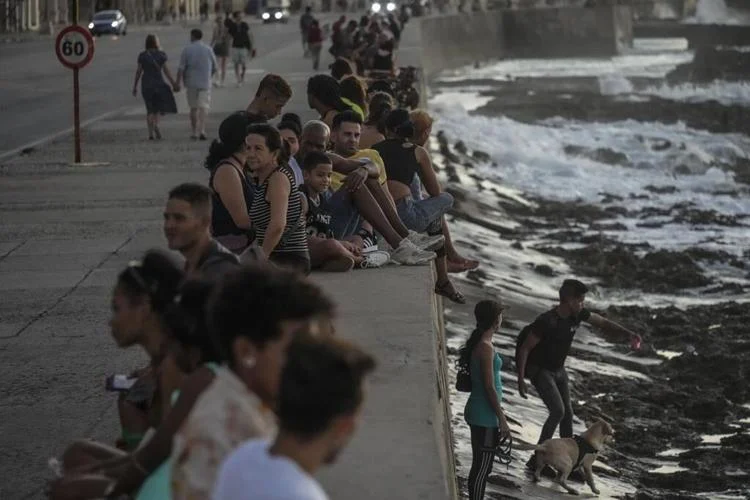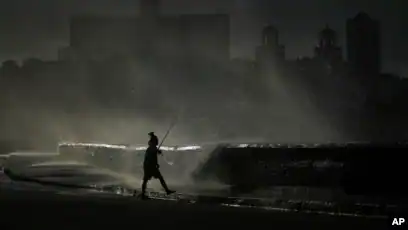Hurricane Oscar has left at least six people dead in Cuba, where a prolonged nationwide blackout has paralyzed the capital and sparked scattered protests, leading to stern government warnings against civil unrest.

The storm made landfall Sunday before crossing the island’s eastern coast as a tropical storm Monday, bringing strong winds and heavy rain. The devastation has triggered small demonstrations in Havana neighborhoods, where residents faced their fourth night without power.
In urban areas like Santos Suárez and central Havana, dozens of protesters banged pots and pans in the streets while others demonstrated from their balconies. Some residents blocked streets with garbage in protest over water shortages.
“The country has completely halted,” said Mayde Quiñones, 55, a homemaker caring for her elderly mother-in-law. “This hurts everyone, but the elderly most of all.”
President Miguel Díaz-Canel addressed the nation Sunday on television, warning that authorities “won’t allow any vandalism, or let anyone disturb people’s tranquility.” The warning comes as Cuba grapples with its most severe blackout since Hurricane Ian in 2022.
Energy Minister Vicente de la O Levy said officials hope to restore reliable electricity by Tuesday morning. However, schools will remain closed through at least Thursday. The minister reported that about 80 percent of Havana had intermittent power by Monday afternoon, though residents expressed skepticism.

The crisis has forced many of Havana’s two million residents to cook with improvised wood stoves on streets as food spoils in unpowered refrigerators. Long lines formed at bakeries and the few operating gas stations, while people waited hours to purchase bread at functioning bakeries.
Cuba’s power grid is currently producing only 700 megawatts against a peak demand of 3 gigawatts. The situation worsened after Hurricane Oscar hit key power plants in the eastern region, including Felton in Holguín and Renté in Santiago de Cuba.
White House press secretary Karine Jean-Pierre attributed the crisis to “long-term mismanagement of economic policy and resources” by Cuban authorities, while Cuban officials blame the U.S. trade embargo.
The blackout has intensified Cuba’s ongoing economic crisis, which has already prompted more than half a million Cubans to emigrate to the United States, with thousands more heading to Europe.
Several nations, including Mexico, Colombia, Venezuela, and Russia, have offered assistance, according to Cuban officials. The government has implemented emergency measures, including suspending classes and shutting down non-essential state workplaces.
a VOA story



